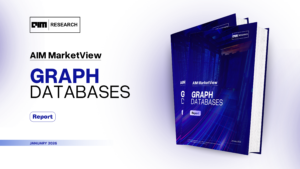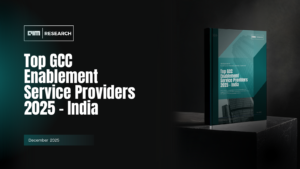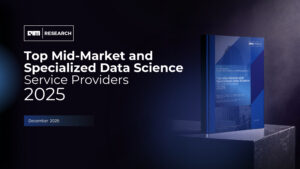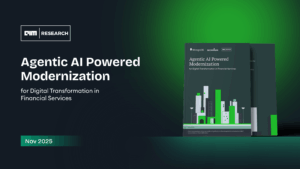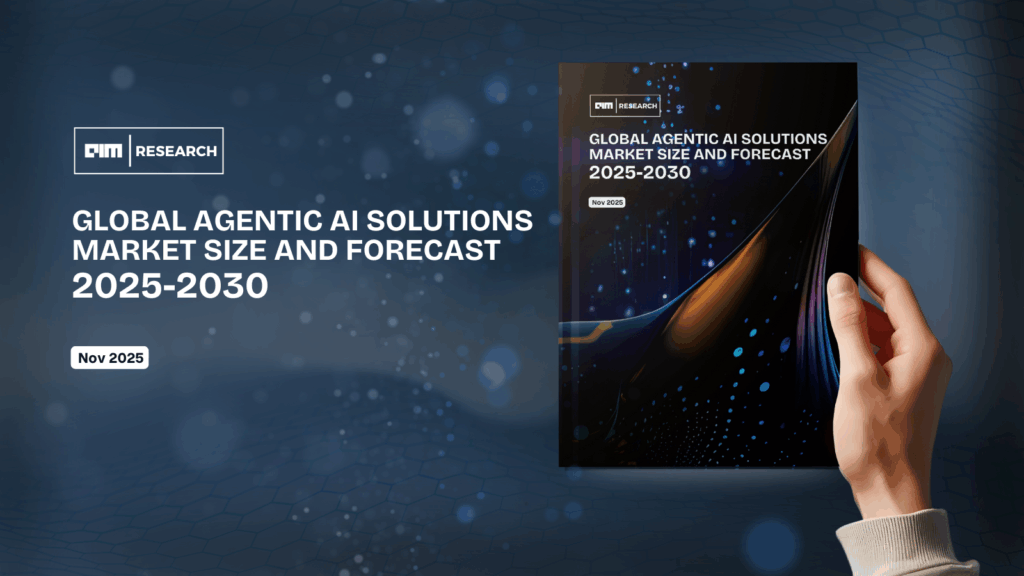

The global Agentic AI solutions market is expanding as enterprises move beyond conventional automation toward more intelligent, autonomous systems. This report outlines the primary drivers supporting this growth, the challenges affecting adoption, and the emerging opportunities across key sectors. It also assesses the future direction of Agentic AI, emphasizing how innovations in multi-agent systems, workflow automation, and domain-focused intelligence are expected to shape market development in the coming years.
The global Agentic AI solutions market was valued at USD 7.0 billion in 2025 and is anticipated to expand at a CAGR of around 57.5% during the forecast period. The growth is attributed to rising enterprise demand for AI systems that operates with autonomy, coordinate across multiple agents, and manage complex workflows with minimal human intervention. Additionally, with the integration of LLM-based reasoning, the need for scalable automation across the business have increased, thereby driving the growth of the market. Moreover, with the increasing investment in AI orchestration and governance frameworks, are anticipated to accelerate market growth in the coming years.
North America accounts for a major share of the global Agentic AI solutions market, followed by Europe and Asia Pacific. Asia Pacific is expected to grow at a strong CAGR in the coming years, supported by rising investments in AI, accelerated digital transformation initiatives, and a growing base of Agentic AI startups. However, factors such as integration complexity, high deployment costs, and evolving regulatory requirements continue to pose challenges for adoption in the region.
An emerging opportunity lies in the continued advancement of cloud and edge AI, the growth of sector-specific Agentic solutions, and improvements in multi-agent system architectures. These developments present significant potential for enabling more autonomous, efficient, and scalable enterprise operations in the years ahead.
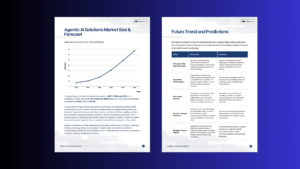
Go beyond the report with a 45-minute strategic session led by an AIM Research analyst. This interactive briefing examines the key findings from the Global Agentic AI Solutions Market, offering a clear view of how emerging Agentic AI capabilities—such as autonomous workflows, multi-agent systems, and domain-specific intelligence are shaping enterprise transformation strategies.
Product, Engineering & Platform Teams:
Vendors developing Agentic AI platforms are seeing accelerated demand for systems capable of autonomous decision-making, contextual reasoning, and multi-agent coordination. As enterprises mature beyond traditional AI workflows, vendors must focus on building robust orchestration frameworks, memory components, tool-use capabilities, and compliance-ready architectures. Scalability, interoperability, and secure integration across cloud, hybrid, and on-prem environments are likely to be critical differentiators.
Sales, Marketing & GTM Leaders:
Buyer sentiment is shifting toward solutions that deliver measurable productivity gains and rapid time-to-value. Vendors can strengthen market positioning by showcasing domain-specific accelerators, real-world automation outcomes, and transparent cost-benefit metrics. Highlighting use cases across finance, healthcare, enterprise operations, and customer service can help capture high-intent buyers prioritizing operational efficiency and workforce augmentation.
Strategic Roadmapping & Competitive Positioning:
The market is becoming highly competitive, with infrastructure-led Agentic AI platforms attracting significant global funding. Vendors must align roadmaps with emerging trends such as multi-agent systems, autonomous workflows, and agentic copilots designed for business functions. Verticalized capabilities—supported by compliance, data governance, and auditability—will be essential for global market expansion.
C-Suite & Business Executives:
Enterprises worldwide are evaluating Agentic AI to improve decision-making, reduce operational bottlenecks, and drive efficiency across complex processes. For executives, the focus lies in understanding ROI, regulatory considerations, and organization-wide transformation potential. Adoption strategies increasingly emphasize phased deployment—starting with high-impact use cases before scaling to autonomous system architectures.
$1,500.00
